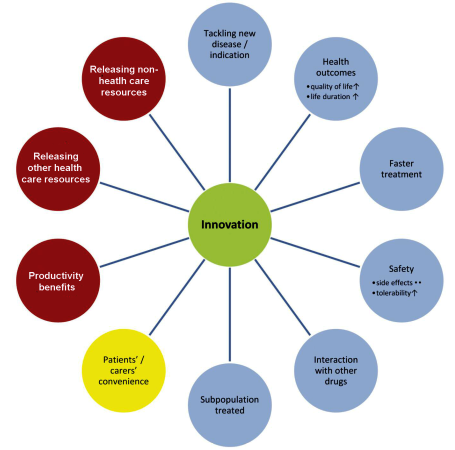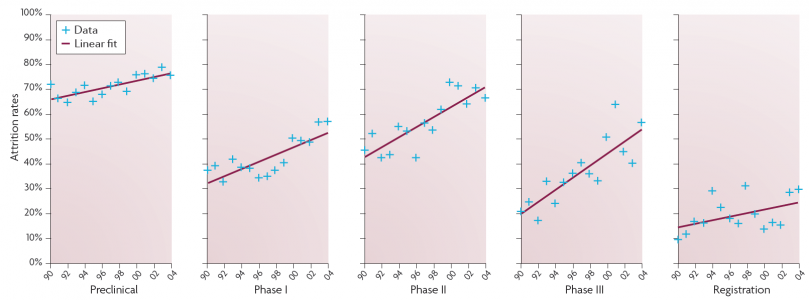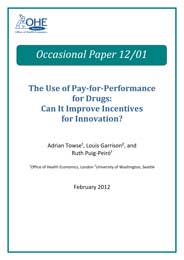Economics of Innovation
Optimal innovation balances willingness and ability to pay with the benefits of future R&D. Our wide-ranging programme aims to promote innovation in health care, increase our understanding of its value, and encourage R&D. New models of innovation should streamline development, reduce costs, and speed patient benefit.

Register Now: OHE Lunchtime Seminar on Innovation
26 June 2012
In response to the R&D productivity crisis affecting the pharmaceutical industry, “big pharma” is seeking to source therapeutics from small and medium sized enterprises (SMEs). In…

Save the Date: Drug Development in 2022, OHE’s 50th Anniversary Conference
21 June 2012
The Economics of Drug Development in 2022 On 8 October, 2012, in celebration of its 50th anniversary, OHE will be holding an important conference to consider…

New OHE Consulting Report Explores the Many Faces of Innovation
19 June 2012
Now available from the OHE website, this report provides a clear explanation of the complex nature of innovation in medicines. A fully revised and expanded version…

New Seminar Briefing: Is Pharmaceutical R&D Experiencing a Productivity Crisis?
14 June 2012
Just published are the results of an OHE Lunchtime Seminar given by Prof Riccaboni, from the University of Trento. In this publication, he explores whether R&D…

Can and Should Value Based Pricing Be Applied to Molecular Diagnostics?
1 May 2012
Just out is an OHE Research Paper that examines the issues. The authors note that diagnostics not only facilitate health gain and cost savings, but also…

Overview of the Economics of the Market for Medicines in the UK
29 March 2012
OHE’s Dr Jorge Mestre-Ferrandiz is a visiting lecturer in the Department of Economics at City University London. As part of his 2012 activities, he recently gave…

New: Pay-for-Performance for Drugs and Incentives for Innovation
27 February 2012
Interest is growing in schemes that involve “paying for pills by results”, that is, “paying for performance” rather than merely “paying for pills”. Despite its intuitive…

What is the True Value of Spending on Medical Research?
13 February 2012
Over the past four years, OHE has been involved in research intended to examine more thoroughly the economic value of medical research in the UK. Understanding…

The R&D Cost of a New Medicine
1 December 2012
The cost of R&D for a successful new medicine has been an important policy issue at least since the 1960s. Cost estimates matter not just because…